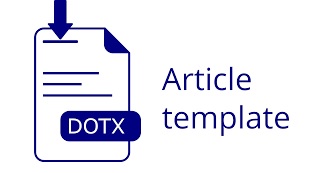Kesiapan Desa dalam Penerapan E-Government (Studi Perbandingan di Desa Semaya dan Desa Pegiringan Kabupaten Pemalang)
DOI:
https://doi.org/10.30656/sawala.v7i2.1542Keywords:
e-government, e-government readiness, village governmentAbstract
Many government organizations have implemented e-government. The use of information and communication technology in governments business process spreads only in the central and local government but also in the village level. One of the most important issues in e-government implementation is institutional readiness. This paper aims to examine village government readiness through comparative analysis. The study is located in the Pemalang regency, one of the most active regencies in developing e-government in the village level. Semaya and Pegiringan Village was chosen as research loci since they represented successful and un-succesful outcome of e-government initiatives. To address the research objective, a case study was conducted. The data was drawn from in-depth interview, observation on website and business process, and relevant documents. We find that e-government readiness in the village level can be assessed from the following aspects: data system, regulatory framework, institutional arrangement, human resources, technological infrastructure, and strategic thinking of leadership. Some policy implications can be drawn to improve the e-government readiness in village level.
References
Abadi, T. W., Prajarto, N., & Guntoro, B. (2014). Performance E-Government Untuk Peningkatan Partisipasi Masyarakat Dalam Pembangunan Infrastruktur Di Kabupaten Sidoarjo. Jurnal Kawistara, 4(3), 237–248. https://doi.org/10.22146/kawistara.6379 Alaaraj, H., & Ibrahim, F. W. (2014). An Overview and Classification of E-Readiness Assessment Models. International Journal of Scientific and Research Publications, 4(12), 1–5. Retrieved from http://www.ijsrp.org/research-paper-1214.php?rp=P363500 Alshehri, M., & Drew, S. (2010). Implementation of e-Government: Advantages and Challenges. International Conference E-Activity and Leading Technologies 2010, 24(3), 79–88. https://doi.org/10.1109/ICoIA.2013.6650243 Aprizal, & Purba, J. R. T. (2013). Akuntabilitas Pelayanan Publik dalam Pelaksanaan E-Procurement di Kota Pangkalpinang. JKAP (Jurnal Kebijakan Dan Administrasi Publik), 17(1), 15–28. Beig, L., Montazer, G. A., & Ghavamifar, A. (2007). Adoption A Proper Tool For E-Readiness Assessment In Developing Countries (Case Studies: Iran, Turkey And Malaysia). Journal of Knowledge Economy & Knowledge Management, II(I), 54–69. Creswell, J. W. (2013). Research Design Pendekatan Kualitatif, Kuantitatif dan Mixed. Yogyakarta: Pustaka Pelajar. Heeks, R. (2001). Understanding E-Governance for Development. I-Government Working Paper Series, 1–25. Retrieved from http://unpan1.un.org/intradoc/groups/public/documents/NISPAcee/UNPAN015484.pdf Kodarisman, R., & Nugroho, E. (2013). Evaluasi Penerapan Sistem Informasi Manajemen Kepegawaian (SIMPEG) di Pemerintah Kota Bogor. JNTETI, 2(2), 24–32. Kurniasih, D., Fidowaty, T., & Sukaesih, P. (2013). Pengaruh Implementasi Kebijakan E-Government Terhadap Kinerja Aparatur Kota Cimahi. Sosiohumaniora, 15(1), 6–14. Latif, A., Wahyu, W., & Surjono. (2012). Penilaian E-Audit Readiness dengan Pendekatan Framework STOPE pada Badan Pemeriksa Keuangan ( BPK ) RI Perwakilan Provinsi Banten. Jnteti, 1(2), 1–9. Lou, E. C. . (2010). E-Readiness: How Ready Are Uk Construction Organizations To Adopt It. Procs 26th Annual ARCOM Conference, 947–956. Mayowan, Y. (2017). Penerapan Teknologi Informasi Dan Komunikasi Di Desa ( Studi Kasus di Kabupaten Lamongan ). Profit Jurnal Administrasi Bisnis, 10(1), 14–23. https://doi.org/http://dx.doi.org/10.9876/10.9876/VOL1ISSN1978-743X Napitupulu, D. (2015). Kajian Faktor Sukses Implementasi E-Government Studi Kasus: Pemerintah Kabupaten Bogor. Jurnal Sistem Informasi, 5(3), 229–236. https://doi.org/https://doi.org/10.24089/j.sisfo.2015.03.009 Pegiringan.desa.id. (2018). Pegiringan.desa.id Raih ID Website Award PANDI 2018. Retrieved September 30, 2018, from https://pegiringan.desa.id/pegiringan-id-raih-id-website-award-pandi-2018/ Pratama, A. B. (2017a). Agencification in Asia : Lessons From Thailand, Hong Kong, and Pakistan. JKAP (Jurnal Kebijakan Dan Administrasi Publik), 21(1), 40–54. Pratama, A. B. (2017b). Citra Pemerintah di Era Digital Tipologi dan Manajemen Reputasi. Yogyakarta: Gava Media. Rahman, A. (2011). Evaluasi Kesuksesan E-Government Studi di Kabupaten Sleman dan Kabupaten Tulungagung. Jurnal Akuntansi Dan Auditing Indonesia, 15(2), 190–203. Rahmawati, R., & Firman, F. (2017). Analisis Impelementasi Kebijakan Aplikasi Qlue Di Wilayah Jakarta Utara. Aristo, 5(2), 386–404. https://doi.org/10.24269/aristo.v/1.2017.10 Sukarso, P., Rokhman, A., & Rosyadi, S. (2017). Faktor yang Berpengaruh terhadap Kesiapan BPK RI Sulawesi Tenggara dalam “E-Audit.†MIMBAR, Jurnal Sosial Dan Pembangunan, 31(2), 283. https://doi.org/10.29313/mimbar.v31i2.1352 Susanto, A. (2011). Analisis Citizen E-Readiness Dalam Pengembangan Desa Berbasis Teknologi Informasi. Masyarakat Telematika Dan Informasi : Jurnal Penelitian Teknologi Informasi Dan Komunikasi, 2(1), 61–74. Retrieved from https://mti.kominfo.go.id/index.php/mti/article/view/19/18 Wahid, F. (2007). Pelajaran dari Implementasi E-Government di Sragen. Seminar Nasional Aplikasi Teknologi Informasi (SNATI ), 35–37. https://doi.org/10.1017/CBO9781107415324.004 Widowati, D. P. D. (2018). Survei PBB 2018: Peringkat E-Government Indonesia. Retrieved November 13, 2018, from http://bpptik.kominfo.go.id/survei-pbb-2018-peringkat-e-government-indonesia/ Wijaya, S. W., & Surendro, K. (2006). Kajian Teoritis : Model E-Government Readiness Pemerintah. Seminar Nasional Aplikasi Teknologi Informasi 2006 (SNATI 2006), 25–28. https://doi.org/1907-5022









